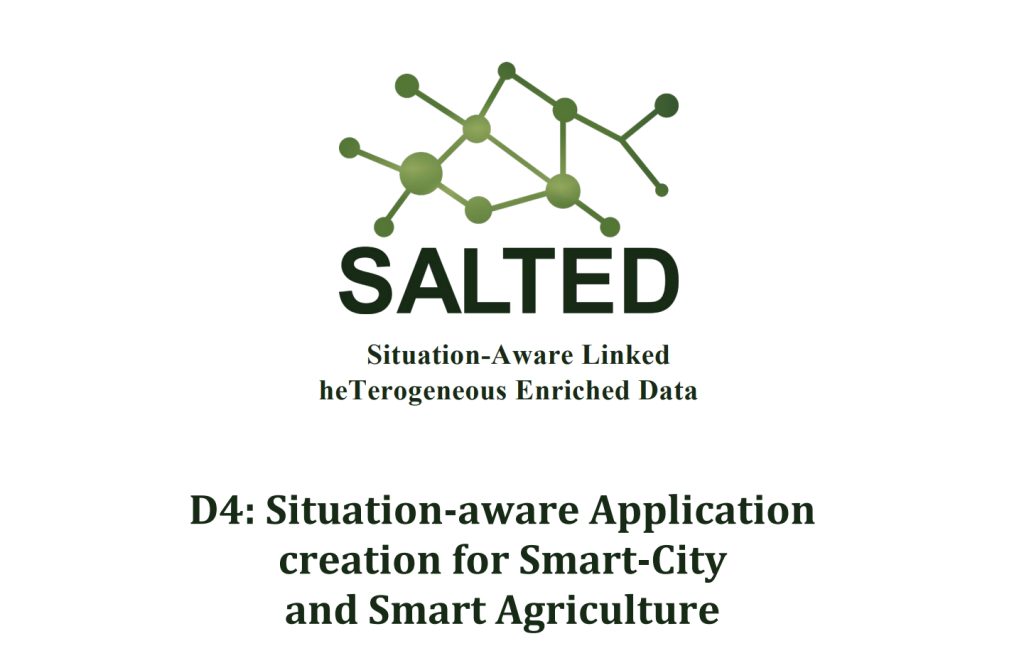
The WP4 handles the development of applications leveraging the SALTED architecture
developed and implemented within the previous work packages. The development of
applications can hereby follow either a bottom-up or top-down approach. Depending on the
approach used, WP4 tasks include e.g. the selection of data sources, the derivation of
requirements for the SALTED Data Injection Toolchain (DIT) / Data Enrichment Toolchain (DET)
and the implementation of the applications themselves.
The applications developed within SALTED try not only to act as examples of the added-value
that arises through the usage of the SALTED architecture, but also intend to fit into the
framework of the European data strategy, promoting the goals formulated within the
framework of this strategy. In particular the overarching goal of strengthening the data economy
is a key goal set.
This document captures all developments and insights created and obtained during working
on the WP4, which results mainly in the description of the applications. For details regarding the
leveraged SALTED architecture the document refers to the D2.1. Similarly for details on data
sources and data injection and enrichment services the document refers to D1.1, D2.2
and D2.3.
This deliverable can be found in the following link.
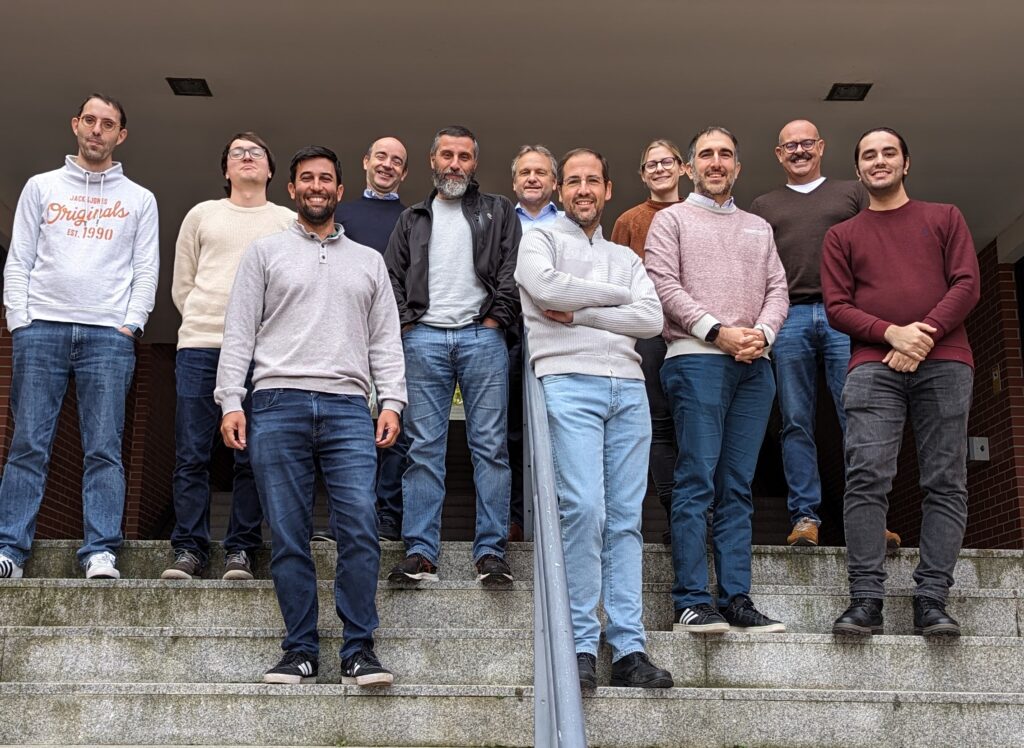
During the last two days we have had one of the latest meetings of the SALTED project before it is officially finished. However, SALTED is only a beginning, and while the project is officially coming to an end, interesting synergies have emerged that will allow us to develop future technologies based on the results of the work carried out during the project lifeime. Thus, new collaborations are for sure envisioned in the future, so stay tuned!
The meeting was held at the Universidad de Cantabria premises, in the beautiful city of Spain, and during the last two days, we have established the final touches to the project before its completion. In particular, the work on the different applications that are taking advantage of the DET platform, is about to be released, including real innovative solutions in different areas, including Smart Agriculture, Smart Cities and Risk analysis. In the forthcoming weeks we will be releasing an online working demo of all of them, so anyone will be able to taste what they have to offer.
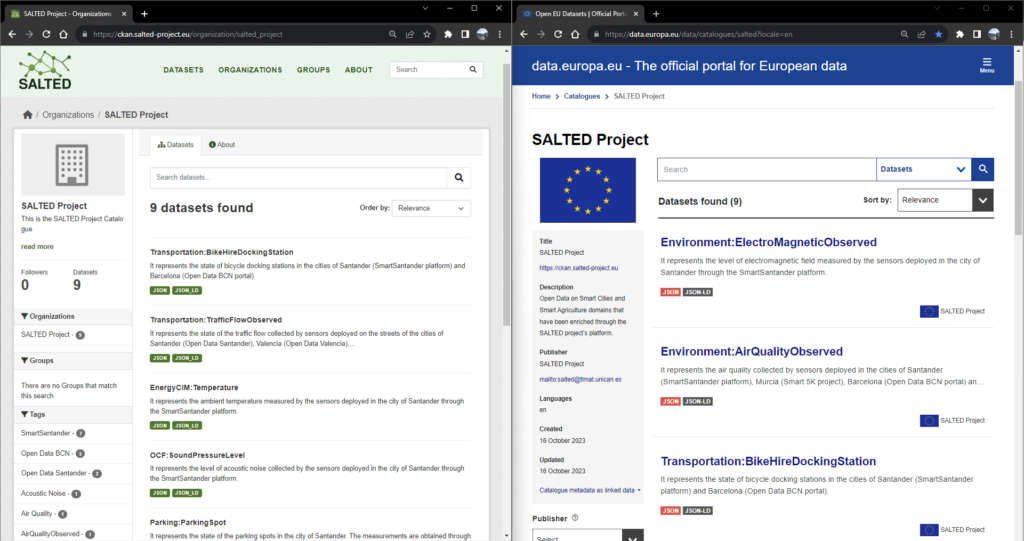
The Open Data paradigm aims to make data available to everyone, without restrictions of copyright, patents or other control mechanisms. The European Data Portal (EDP) is one of the key pillars of Open Data evolution, offering a central portal for the discovery and publication of data within the European Union.
At SALTED, we are delighted to contribute to this approach by publishing our data into the EDP. To this end, we have deployed our own data portal, which provides access to the data generated during the course of the project. Thanks to this portal, the EDP is able to consume our data, promoting its visibility and enabling its usage, thus facilitating the development of innovative services and groundbreaking research.
If you want to check out the types of data that we've been writing about in previous posts, now is finally your time to do so! They are readily available here, as well as in our section inside the EDP.
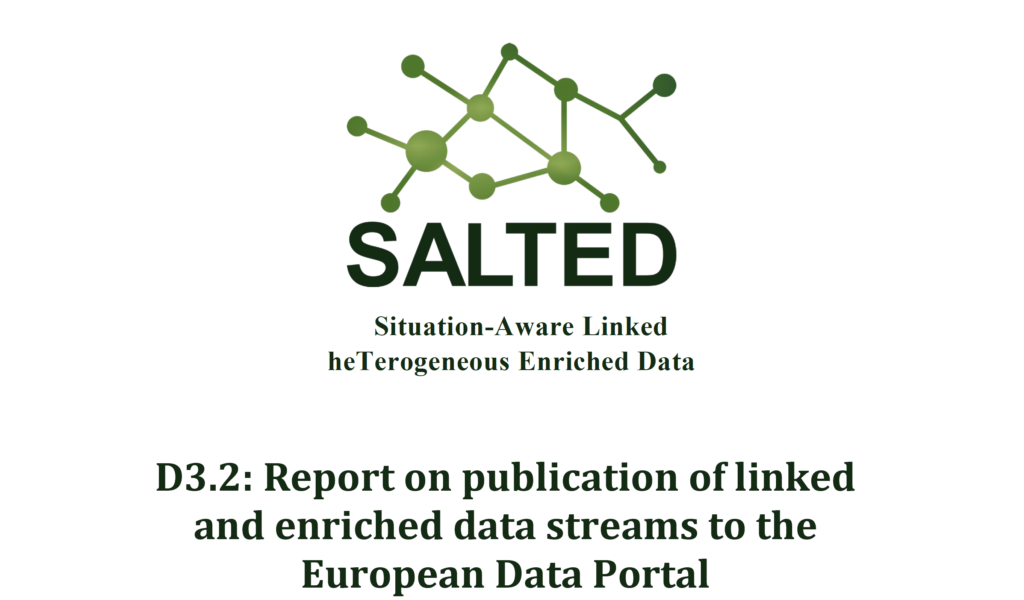
This document, developed by the SALTED project, represents the D3.2 deliverable on the publication of linked and enriched data streams to the European Data Portal. The focus of this document is the description of the last step of the Scorpio Context Broker – CKAN connector regarding the publication of datasets into the EDP. Furthermore, D3.2 includes information on updates to component development since D3.1.
This deliverable, along with the rest of them, can be found in the publications section.
SALTED has been present in one of the latest seminars organized by Schloss Dagstuhl, a presitigous institute to foster world-class research in computer science by facilitating the communication and interaction between researchers.
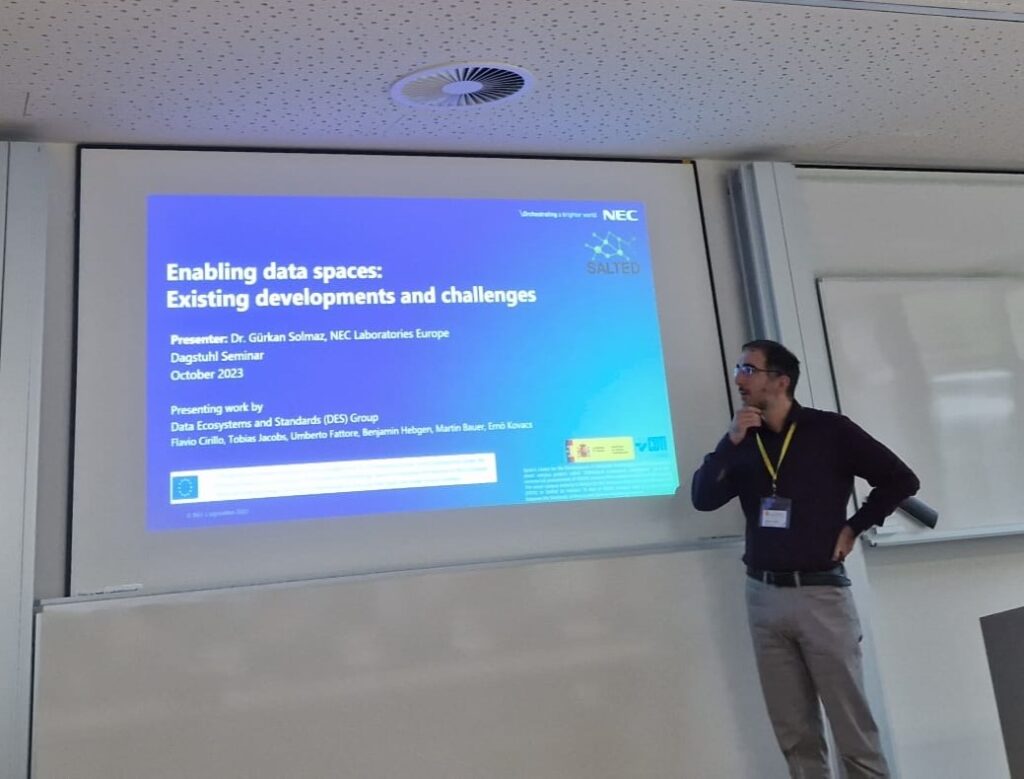
Our colleague, Dr. Gurkan Solmaz from NEC Laboratories, presented a talk during the Dagstuhl-Seminar 23432 "Edge-AI: Identifying Key Enablers in Edge Intelligence". This seminar addresses challenges such as:
The talk at Dagstuhl included a short introduction to the concept of Data Spaces based on the recent developments of IDSA, Gaia-X and FIWARE, and the challenges of data interoperability and data value. The recent work from the Data Ecosystems and Standards (DES) group at NEC Laboratories Europe focuses on solving those challenges using real-world sensor data and geographic data from the case studies of City Liveability Index (CLI) of SALTED project, Smart Campus Murcia, and Humanitarian Landmine project. The data enrichment and contextualization platform is utilized in the case studies through the technologies such as TrioNet, FIWARE Scorpio Broker, FIWARE FogFlow and AI/machine learning for predictions and transfer learning.
If you want to read more about such challenges, a recommended read is the paper titled "Enabling data spaces: existing developments and challenges" where more details are given on Data Spaces.
A new paper has been published, featuring the Data Enrichment Toolchain (DET), the system design behind the harmonization and enrichment of highly heterogeneous data sources in SALTED. More details about this paper can be found in the IEEE Access repository; while we reproduce the abstract below.
Abstract: Proliferation of data sources associated to Internet of Things (IoT) deployment as well as those bound to Open Data Portals (e.g. European Data Portal, Municipalities Open Data Portals, etc.) and Social Media platforms is creating an abundance of information that is called to bring benefits for both the private and public sectors, through the development of added-value services, increasing administrations’ transparency and availability or fostering efficiency of public services. However, pieces of information without a context are significantly less valuable. Raw data lacks semantics and it is highly heterogeneous from one data-source to another. This poses a challenge to make it useful. To turn all this data into valuable information it is necessary to enable its combination so that meaningful context can be created. Moreover, it is fundamental to define the mechanisms enabling the adoption and orchestration of advanced (typically AI-enabled) data processing techniques to be applied over the harmonized datasets and data-streams. This paper presents the Data Enrichment Toolchain (DET) that provides the necessary harmonization and enrichment to datasets and data-streams coming from heterogeneous sources. The value of the enriched data lies on the one hand in the transfer of the data into a semantically grounded knowledge graph and, on the other hand, in the creation of new data through linking, aggregating and reasoning on the data. In both cases, the benefit of employing linked-data modelling and semantics comes from the extension of the metadata that is associated to every piece of information. Furthermore, the experimental evaluation of the DET implementation that we have carried out is also presented in the paper.
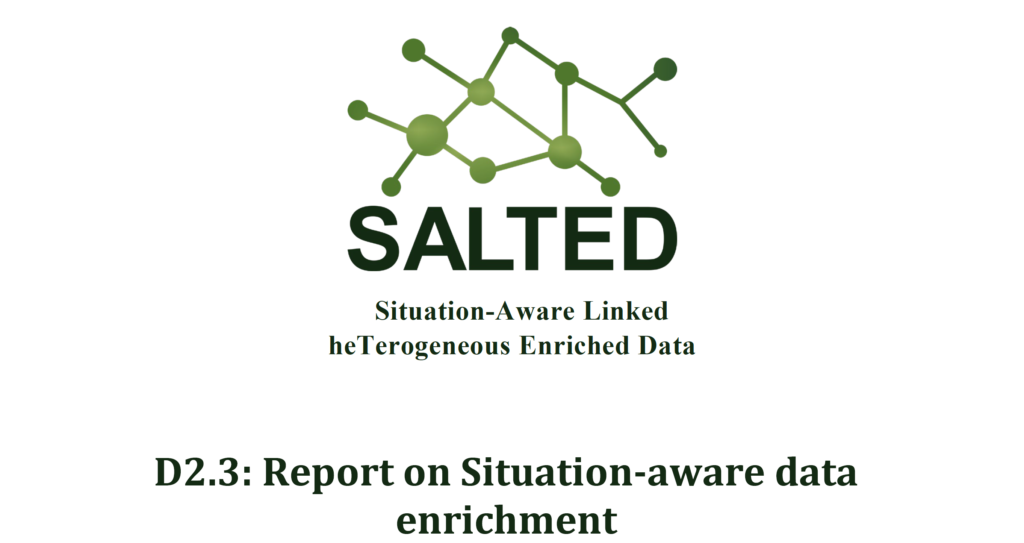
This document, developed by the SALTED project, represents the D2.3 deliverable of the situation-aware data enrichment. The focus of this document is the definition of the architecture implementation and deployment, regarding the enrichment of data that has been carried out throughout the project. The close link to the applications of activity 4 results in a short description of applications as well. Furthermore, D2.3 includes an update on the architecture implementation and deployment reported in deliverables D1, D2.1 and D2.2.
This deliverable, along with the rest of them, can be found in the publications section.
It goes without saying that one of the key pillars of any project is the code behind the abstract definitions and architectures, and SALTED is no exception. One of our contributions is the release of open source code intended to facilitate future development, both for ourselves and for any interested third party.
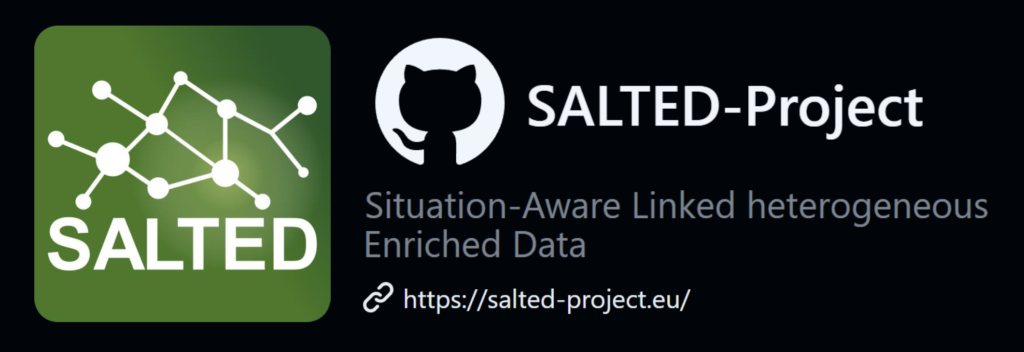
The SALTED GitHub repository is our chosen place for hosting the code developed within the project, and although the bulk of it will be released a few months from now, we are happy to announce that the repository is already full steam ahead.
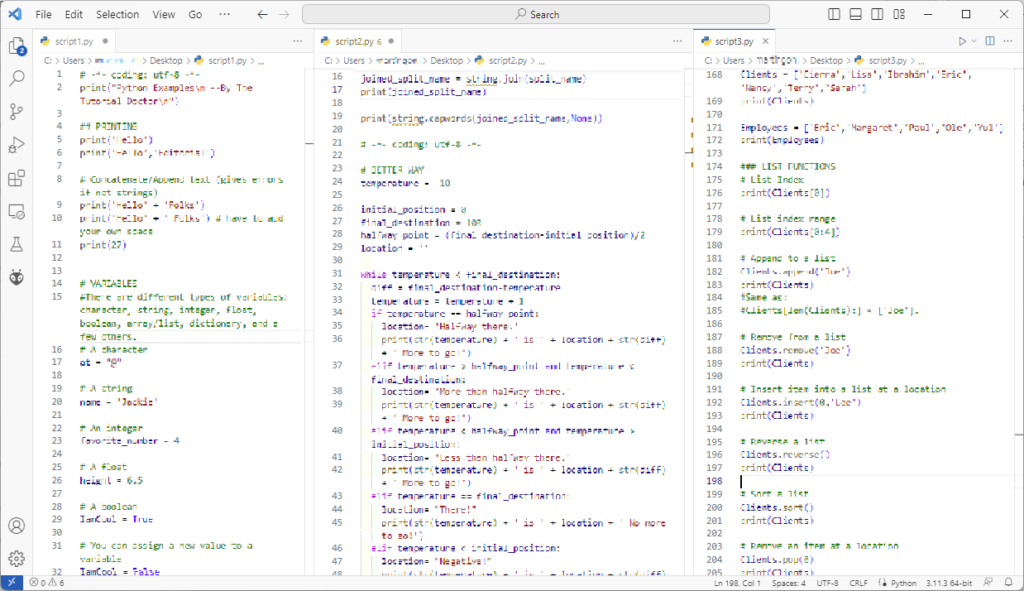
Currently, the repository includes some forks related to our Smart Data Models contributions (such as the extensions and updates to DataServiceDCAT-AP and AgriParcel data models; or the creation of the new Organization and Data Quality Smart Data Models), a compendium of NGSI-LD wrapped contexts that enable automation of M2M information exchange with an NGSI-LD Context Broker. Besides, it also hosts two Python packages that streamline communication among the modules that compose SALTED's architecture.
Stay tuned!
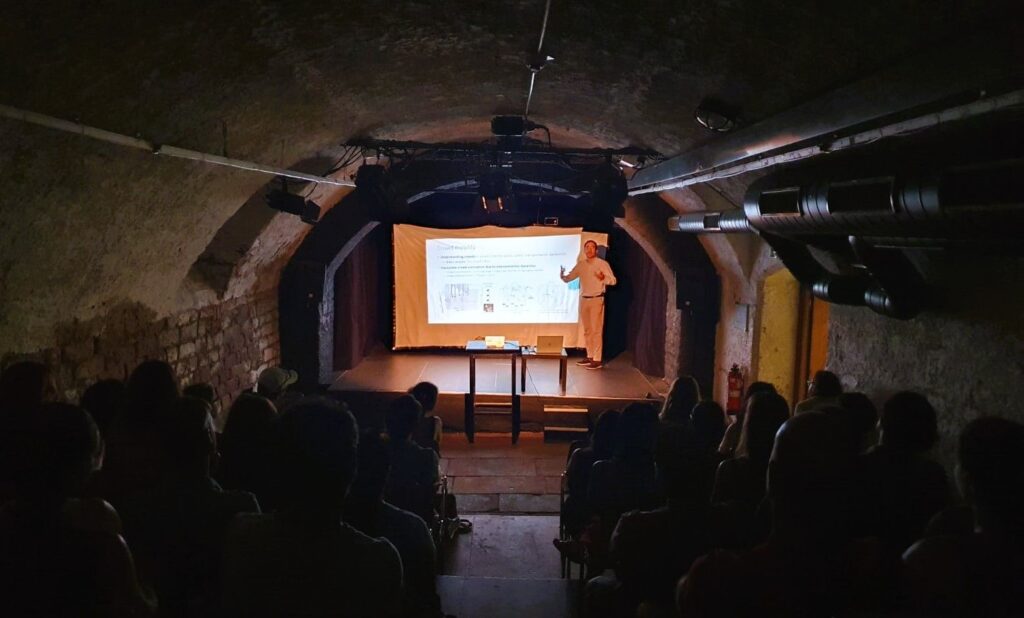
Dr. Gürkan Solmaz from CEF SALTED has been invited as a keynote speaker by the AI Educational Initiative (AIEI) in Heidelberg, Germany on July 8,2023. AIEI is a recently formed community to educate broader society on the AI. The keynote lecture was in general about the AI and its applications to the smart cities. Specifically, the lecture focused on the data enrichment through machine learning for the development of the concept “City Liveability Index (CLI)” in CEF SALTED to make cities smarter and more livable.
The public lecture started with a brief AI overview and followed by the smart city projects and specifically the AI for data enrichment for the smart city data and the SALTED smart city application CLI. The lecture ended with the open challenges of application of AI in smart cities or in general public spaces in the near future.
The keynote talk is followed by a panel discussion with lively exchanges between the audience and Dr. Gürkan Solmaz, joined by Dr. Ana Victoria Ponce Bobadilla, Dr. Jude Alsabah, and Dr. Magdalena Szczygiel.
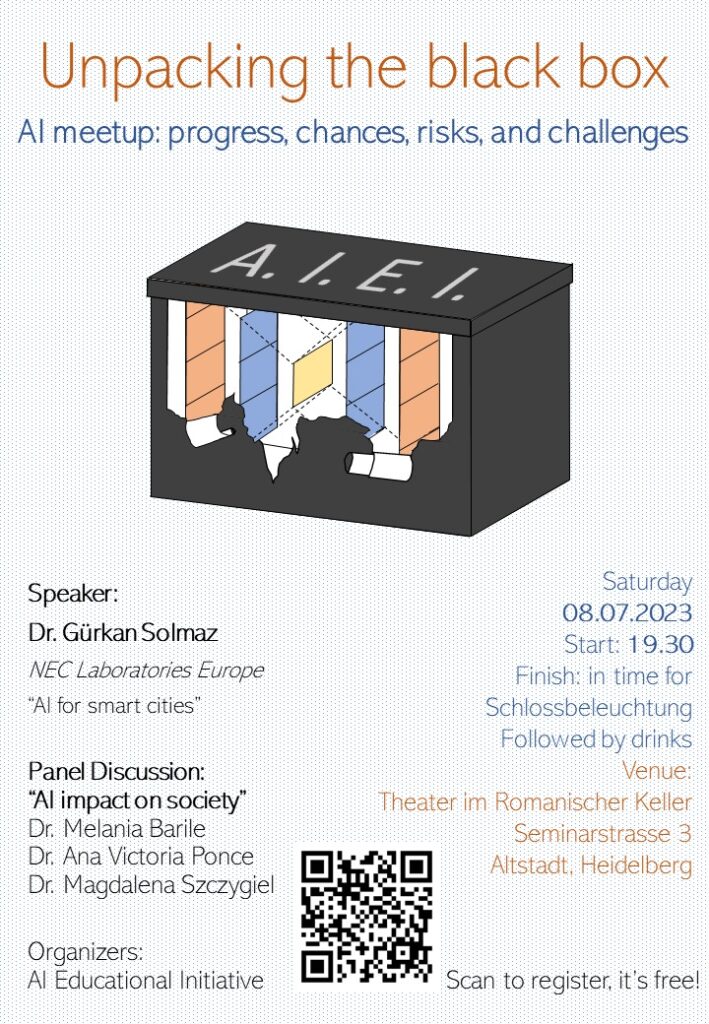
About the AI Educational Initiative (from https://www.linkedin.com/company/ai-educational-initiative/) :
AI Educational Initiative was launched in 2023 to educate broader society about the chances but also risks associated with implementing AI into many areas of our lives. We hope to "de-hype" AI, preach online hygiene, calm down those afraid of mass job losses but alert those believing that AI will solve all our problems.
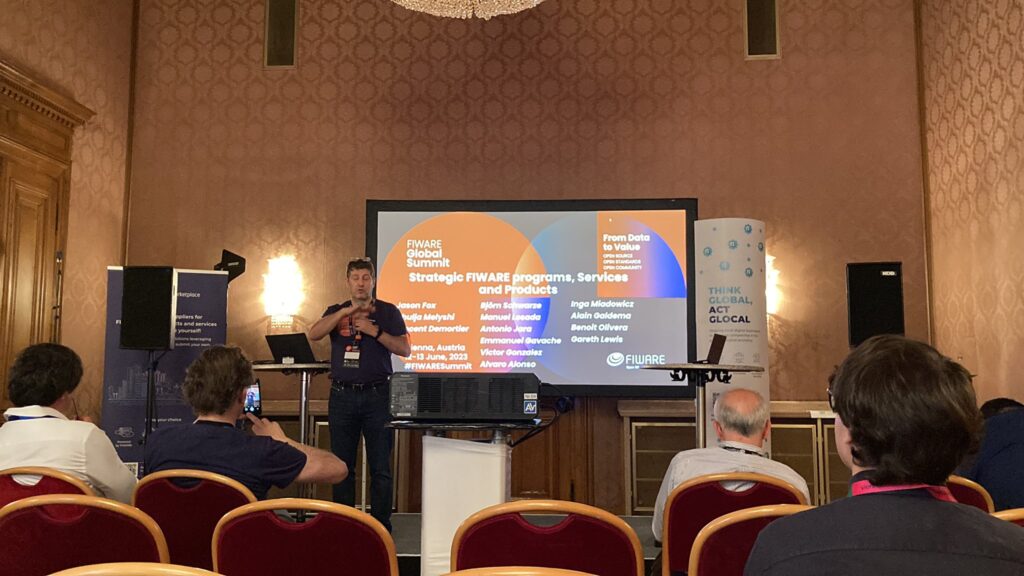
FIWARE Global Summit 2023, the grand annual event organised by the FIWARE Foundation, took place on June 12 and 13 in Vienna. Some of the SALTED team partners attended the event and had the opportunity to promote the project.
SALTED was present in the "Strategic FIWARE programs, Services and Products" session. A 10 minute slot allowed for a presentation of the project and its relation to the Smart Data Models initiative. As we have covered in previous articles, SALTED has a close relationship with the FIWARE ecosystem and Smart Data Models in particular, as the project adopts several models and has contributed to the initiative with five extensions and additions.
The attendees were able to learn about the philosophy and goals of the SALTED project, with an emphasis on the harmonisation of heterogeneous data sources. Additionally, the speaker explained our contributions to the initiative and linked them to the use cases of the project, which will derive in the applications that are currently in development.
You can see the slides below: